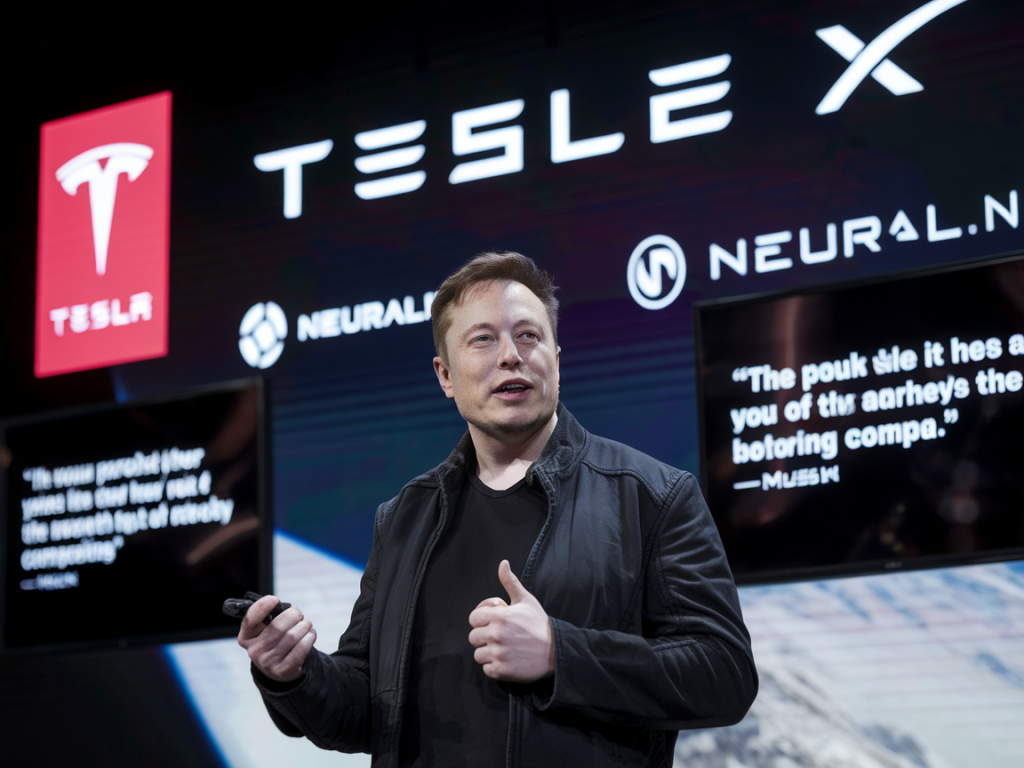
Elon Musk. The name itself stirs up imagery of electric cars, reusable rockets, and wild ambitions like colonizing Mars. But beyond his headline-grabbing ventures, Musk offers something profoundly valuable for B2B leaders: a masterclass in innovation. His approach to transforming industries serves as an inspiration not only for tech startups but for businesses across the B2B spectrum. Today, I want to break down Musk’s unique approach to innovation and how his strategies can be applied to elevate your business in the evolving B2B landscape.
Challenging the Status Quo
One defining characteristic of Musk’s approach is his relentless questioning of the status quo. From SpaceX’s reusable rockets to Tesla's push for global EV adoption, Musk consistently identifies industries stuck in "business-as-usual" mode and disrupts them with bold innovation. For instance, when others saw rockets as one-time-use, Musk asked, "Why can’t they be like airplanes—used multiple times?" This visionary thinking has placed him leagues ahead of competition in each market he enters.
In the B2B world, this mindset can translate into rethinking traditional processes. For example, supply chain managers might explore blockchain for greater transparency, or HR platforms could integrate AI to personalize employee engagement. The key is to identify inefficiencies in your sector and address them with bold, forward-thinking solutions.
The Power of First Principles Thinking
Musk has repeatedly spoken about his reliance on “first principles thinking," a concept that encourages breaking a problem down to its core elements and rebuilding a solution from the ground up. A famous example involves Tesla’s battery costs. Instead of accepting market prices as a given, Musk and his team dissected what batteries were made of, sourced materials directly, and re-engineered the manufacturing process, drastically lowering production costs.
This principle holds immense value for businesses grappling with complex challenges. Are you stuck with high operational costs? Dive deep into the fundamental components of your workflow and reimagine how they could be optimized. Your competitors may follow industry norms, but applying first principles thinking could earn you the elusive competitive edge that separates market leaders from followers.
Customer-Centric Innovation
Another key part of Musk's success is his ability to understand and prioritize customer needs—even when customers themselves may not know what they want. Whether it’s a Tesla driving itself or a sleek user experience on a SpaceX shuttle, Musk's relentless focus on creating products that delight users has built loyalty unlike anything else we’ve seen in the modern age.
What lessons can B2B leaders draw here? If you’re developing a SaaS product, go beyond basic features. Ask yourself: How can this tool fundamentally transform the way our customers operate? Engage your clients for feedback, but also imagine innovative functionalities they haven’t yet considered. Employees at Salesforce, for instance, have mastered refining CRM tools to anticipate the future needs of sales teams worldwide—this proactive approach often gives them a competitive leg up.
Leveraging Technology for Scalability
Musk’s ventures don’t just disrupt industries—they scale rapidly. This ties back to his openness to integrating cutting-edge technology to achieve massive reach. With Tesla, the innovative Gigafactories combined automation and sustainability to produce batteries at scale, while at SpaceX, advanced robotics expedite rocket manufacturing.
For B2B companies, the incorporation of technology is no longer optional—it's essential for staying competitive. Consider leveraging cloud solutions to process large amounts of data or using AI to automate repetitive business functions. These tools not only boost efficiency but make scalability a real possibility. Technologies like robotic process automation (RPA) are already helping industries from healthcare to logistics revolutionize their backend operations, paving the way for unfathomable growth.
Embracing Failure as a Stepping Stone
How many CEOs are willing to publicly embrace failure the way Musk does? After early SpaceX rockets exploded and Tesla struggled to turn profits, skeptics doubted Musk’s bold ambitions. Yet, he accepted each failure as a learning opportunity, pulling lessons from each setback to improve processes and products. Today, SpaceX dominates the private space exploration industry, and Tesla has become synonymous with sustainable mobility.
In the B2B sphere, too many professionals avoid risk due to fear of failure. But innovation is rarely linear. If your latest digital transformation project results in hiccups, analyze what went wrong and adapt. The lessons inherent in trial and error can build a foundation for long-term growth. In Musk’s words: “Failure is an option here. If things are not failing, you are not innovating enough.”
Building a Bold Vision and Communicating It
Perhaps Musk’s most underappreciated skill is his ability to tell a compelling story. Whether it’s convincing the world that Mars colonization is possible or painting Tesla's machines as the future of our planet, Musk communicates his vision in a way that inspires belief, even amid adversity.
B2B leaders can adopt a similar storytelling strategy. When presenting a new product to stakeholders or pitching a solution to a client, paint a vivid, engaging picture of what the future could look like with your innovation at the helm. This ability to rally people around your mission will not only attract customers but also foster internal team alignment, which is key to executing bold ideas.
Collaborations That Create Synergy
A lesser-known part of Musk’s strategy involves strategic partnerships to amplify his companies’ capabilities. From tapping Panasonic to develop Tesla batteries to Starlink's collaborations with governments to expand internet coverage in remote regions, Musk uses partnerships as a platform for synergy.
In the B2B ecosystem, collaborations can be equally powerful. Are you a marketing agency? Partner with analytics firms to complement your expertise with data-driven solutions. Are you in the logistics sector? Work with IoT providers to enhance transparency and efficiency in the supply chain. Smart collaborations can unlock value that would be impossible to achieve independently.
Musk’s approach to innovation isn’t reserved for high-tech billion-dollar ventures; it’s a mindset that any B2B business can embrace. By redefining norms, focusing on scalability, and weaving failure into the path to progress, Musk has set a blueprint for how innovation can thrive in any industry.

